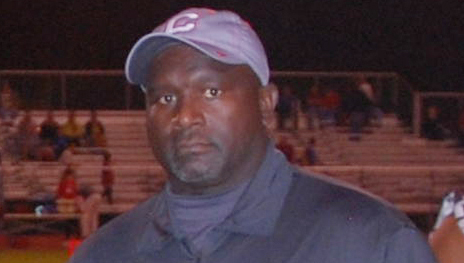Dennis Conner serves as the head coach of the Central High School football team, but his impact on the players and community extends beyond the drawing boards.
Conner grew up on the west side of Tuscaloosa, which is known for being an impoverished area of the city. In 1979, a federal court desegregation order forced the merging of two segregated schools, forming the newly-integrated Central High School. Conner attended Central from 1979 to 1983 and became a standout football player. He would go on to earn a scholarship to play at Jackson State University.
The Tuscaloosa native returned to Central five years ago to become the head coach of the football program as well as the Dean of Students. However, things were vastly different than when he attended the school. In 2003, Tuscaloosa was no longer under the desegregation order, and Central was split into three separate schools due to overcrowding. Central, once a school with almost an equal amount of white and black students, has been over 99 percent African American since the split.
Conner said he wants all the kids at Central to be exposed to real life experiences.
“Me personally, I know the kids are not getting a true feel of the reality of today’s world,” Conner said. “I didn’t look at my teammates as white and black players. I looked at them as teammates.”
Central was known for its academic success before the separation, but graduation rates fell below 50 percent after the school was broken up. Over the past three years, however, 95 percent of Central’s football players have graduated.
Conner has done a great job of motivating the players to succeed, said Richelle Adams, the school’s athletic director.
“He has accomplished making sure that his athletes want to graduate,” Adams said.
Most of Central’s current students reside in poverty-stricken West Tuscaloosa, the same area that Conner called home growing up. Despite a rough upbringing, Conner was able to earn his way into college.
Before becoming the head coach of Central, Conner spent 10 years coaching at the collegiate level. The 50-year-old spent a number of years as the defensive coordinator at Stillman College. Conner turned down an opportunity to coach at Central because he aspired to become the next head coach at Stillman, but Conner was later fired from Stillman.
Conner said he thought his coaching career was over after he turned down Central’s offer.
“I was sitting in my basement for two weeks pouting,” he said.
Central would eventually again offer Conner the chance to become its head football coach, and this time the former star linebacker agreed to coach his alma mater. Conner said he still has the release papers from Stillman and keeps them on his front dashboard as a reminder.
“That reminds me that when one window closes, another one opens,” Conner said.
The rookie coach went 0-10 in his first year at Central. Conner said he was not used to being a part of a losing situation in a football setting.
“That was my first time ever being connected to anything losing,” Conner said.
Initially, it was tough on Conner because the school cared more about the development of the players than winning, said Clarance Sutton Jr., principal of Central.
“First couple of years, it was tough on him, because we put more emphasis on culture and discipline than wins and losses,” Sutton said. “He had to bridge that gap, but he did a good job of doing that.”
Adams said Conner provides a solid foundation for the players.
“He means stability,” Adams said. “No matter what as athletic director, I know that my young men are going to be taught, challenged and disciplined.”
Conner said he wants to stress to the importance of having a plan for the future to his players.
“I can’t make sure that they’re successful, but I can at least give them tools to work with to be successful,” Conner said. “I want to talk to them to make sure they all have an exit plan.”
Sutton said Conner sets a great example for his players and students.
“He is a model,” Sutton said. “He solved the puzzle, and that next generation can see that.”
Conner said the best part about being a coach is when his players tell him they learned from his teachings.
“My favorite thing about coaching is when kids come back and say, ‘Coach, I understand what you were talking about now,’” he said.









